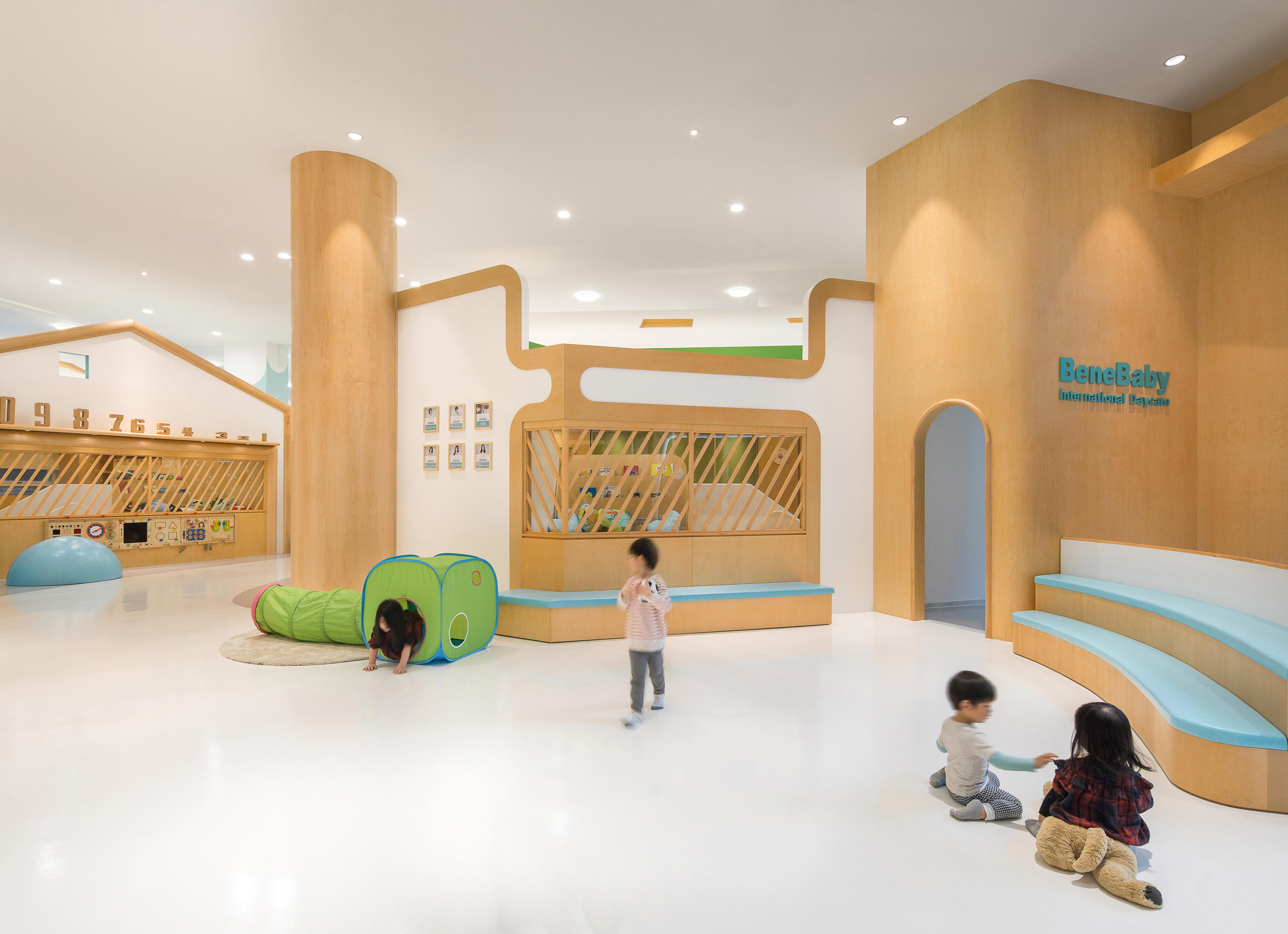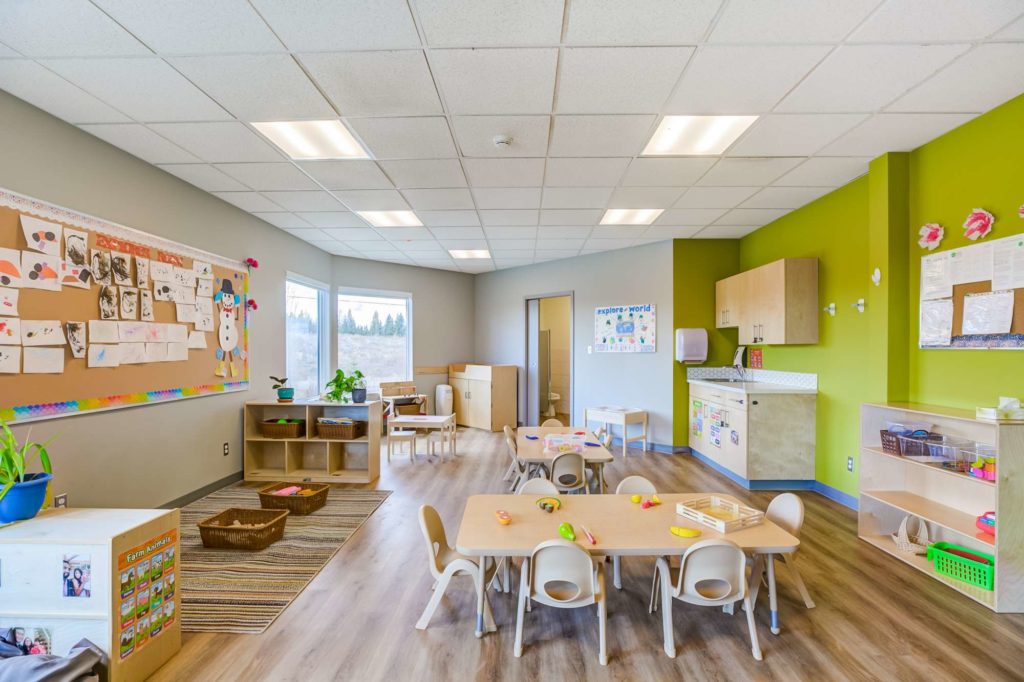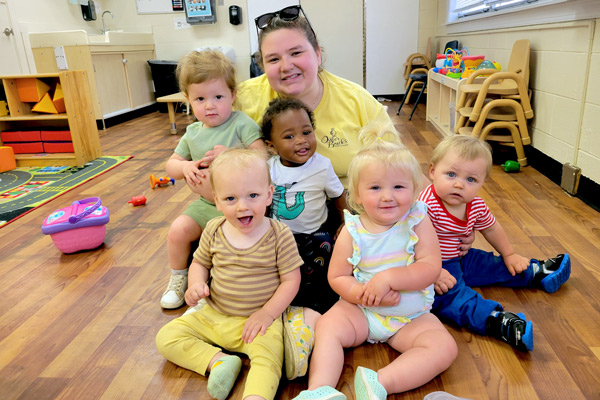Affordable Toddler Daycare Near Me: Perfect Care for Your Growing Child
Affordable Toddler Daycare Near Me: Perfect Care for Your Growing Child
Blog Article
Comprehending the Relevance of Daycare for Your Young child's Social Growth and Understanding Knowledge With Engaging Activities
The importance of daycare in shaping a kid's social development and knowing can not be overemphasized, as it supplies an organized atmosphere filled with interesting activities that are critical for early growth. As we discover the complex benefits of childcare, one must consider exactly how these fundamental experiences influence a child's future social interactions and general growth.

Advantages of Social Communication
Social interaction plays an essential duty in the developing trajectory of young children, working as a structure for essential social skills. Engaging with peers allows toddlers to exercise interaction, find out to express their emotions, and create compassion. Through shared play and collaboration, they begin to comprehend social standards, such as taking turns and sharing, which are essential parts of effective interpersonal partnerships.
In addition, social communications add to cognitive advancement. As young children interact with their peers, they enhance their language skills, increase their vocabulary, and improve their capacity to verbalize feelings and ideas. This exchange of ideas fosters important reasoning, as kids learn to negotiate, address issues, and navigate problems.
Additionally, social interaction promotes psychological policy. Exposure to numerous social situations helps kids identify and manage their feelings, ultimately causing greater durability and adaptability. The capacity to form attachments and friendships additionally boosts their feeling of belonging and self-esteem, which are crucial for overall wellness.
Value of Engaging Activities
Engaging tasks are vital for fostering a revitalizing environment that enhances toddlers' social growth. These tasks not only captivate young kids's focus however additionally promote active involvement, enabling them to discover their surroundings creatively. Through play-based knowing, toddlers establish crucial abilities such as problem-solving, teamwork, and empathy, every one of which are crucial for building healthy partnerships with peers.
Getting involved in interesting activities, such as team games, art jobs, and interactive narration, motivates young children to share their sensations and ideas. This expression is important for psychological knowledge and assists them comprehend the viewpoints of others. When young children involve in these tasks together, they discover to work out duties, share resources, and work together, which are fundamental facets of social communication.
In addition, a well-structured environment that includes varied and revitalizing activities helps in maintaining kids inspired and focused. This motivation fosters a love for finding out and expedition, laying the foundation for future academic experiences. Ultimately, involving activities in day care settings are crucial fit social skills, preparing young children for successful interactions past the classroom, and supporting their general advancement throughout these developmental years.
Developing Communication Skills
Reliable interaction abilities are important for toddlers as they browse their early social interactions. In a day care setting, youngsters are subjected to diverse social scenarios that urge non-verbal and spoken communication. Talking with caregivers and peers cultivates language development, allowing toddlers to share their needs, thoughts, and feelings a lot more successfully.

Additionally, daycare environments provide opportunities for toddlers to observe and resemble communication styles of their peers and adults. This observational learning helpful resources is crucial as kids detect social cues, tone, and body movement, which are necessary elements of efficient interaction.
Promoting Independence and Self-confidence
As kids improve their communication abilities, they all at once begin to explore their independence and develop confidence in social setups (baby daycare near me). Daycare provides an organized environment where kids can participate in numerous tasks that encourage freedom. From selecting their very own activities to getting involved in group tasks, these experiences equip kids to make decisions and express themselves
In a day care setup, children are usually offered with chances to address troubles individually, whether it's identifying how to share toys or dealing with disputes with peers. This fosters important reasoning helpful site and promotes self-reliance. Furthermore, caretakers support this advancement by giving positive support and advice, aiding children to browse social communications with confidence.

Group tasks, such as participating video games or collective art projects, promote synergy and instruct kids the value of functioning together. With these interactions, kids find out to connect their thoughts and feelings, even more boosting their self-esteem and social skills.
Inevitably, promoting freedom and confidence in daycare not just prepares young children for future social settings but likewise prepares for a resilient state of mind, outfitting them with vital life abilities as they remain to expand and find out.
Structure Lifelong Understanding Structures
A solid structure for long-lasting knowing is critical for young children, as their very early experiences form their perspectives towards education and learning and curiosity. Daycare environments play a critical duty in this developing stage by providing structured opportunities for exploration and engagement. Involving tasks, such as team play, crafts and arts, and interactive narration, boost cognitive growth while encouraging social interaction.
With these experiences, young children discover crucial abilities such as problem-solving, interaction, and collaboration. They are introduced to the principle of finding out as a satisfying, collective process instead of a chore, which redirected here promotes a positive attitude in the direction of education and learning. Direct exposure to varied perspectives and peer communications in day care settings improves psychological intelligence, promoting compassion and durability.
Caregivers and teachers likewise contribute substantially to developing this foundation by modeling curiosity and excitement for understanding. By urging inquiries and promoting conversations, they produce an atmosphere where children really feel risk-free to reveal themselves and explore originalities. Eventually, the mix of helpful relationships and interesting activities in childcare setups lays the foundation for a long-lasting love of learning, gearing up kids with the skills and state of mind required for future scholastic and individual success.
Conclusion

The relevance of childcare in forming a kid's social growth and discovering can not be overemphasized, as it uses a structured atmosphere filled with engaging activities that are crucial for very early growth.Social communication plays a vital function in the developmental trajectory of kids, serving as a structure for crucial social abilities. When young children involve in these activities with each other, they find out to negotiate functions, share resources, and collaborate, which are fundamental aspects of social communication.
Eventually, engaging tasks in day care setups are crucial in shaping social skills, preparing toddlers for successful communications beyond the classroom, and supporting their general advancement throughout these developmental years.
Ultimately, the advantages of engaging activities in daycare settings play a considerable duty in preparing young children for future social communications and challenges. infant daycare near me.
Report this page